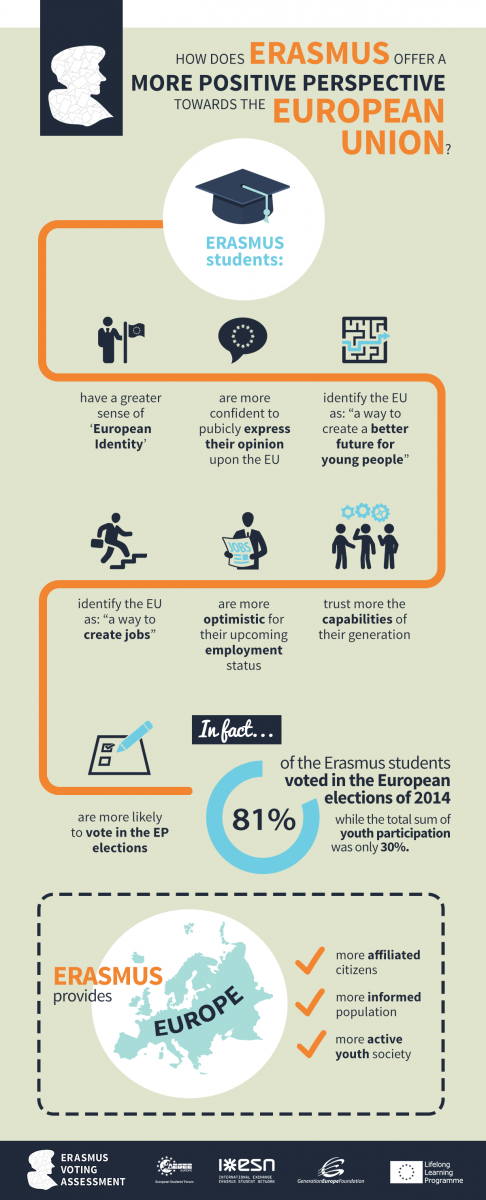In 2013, AEGEE, ESN and GEF partnered up and launched a new project, funded by the European Commission's LLL programme. The aim of the project was to investigate through a scientific research across Europe the voting behaviour of Erasmus students in the European Union's parliament elections. The study evaluates the impact of ERASMUS programme in students' European citizenship and participation in democratic processes like the European Parliament Elections.

Key findings:
- Erasmus students tend to have a more balanced view of the EU than young people in general: while they are just as likely to identify with its potential drawbacks, they are more likely to identify its potential benefits. They also have higher levels of political participation as expressed by voting behaviour.
- EVA respondents were just as likely as EB (Eurobarometer) to recognise and identify with negative perceptions of the EU, however, they were also more likely to recognize and identify with positive perceptions of the EU. Among other aspects, they were more than twice as likely to identify the EU as “a way to create a better future for young people” and almost 50% more likely to see it as “a way to create jobs”
- 81% of EVA respondents who had completed their stay abroad reported that they had voted in the 2014 European Parliament Elections. This figure can be compared to a general election turnout of 42.5%, or to a 30% turnout of young people during the 2009 EP elections
- Feelings about and knowledge of the EU do not play a significant role in the EVA sample: the ‘Erasmus experience’ seems to be the major factor influencing respondents’ voting behaviour, significantly increasing the likelihood of voting
- Approximately 35% of the EVA respondents that have an ‘Erasmus experience’ (as opposed to respondents who have not studied abroad) believe that participation in the Erasmus programme has made them more interested in and willing to vote in the EP elections
- Erasmus students are more positive about the EU and have a greater sense of European identity

Follow ESN